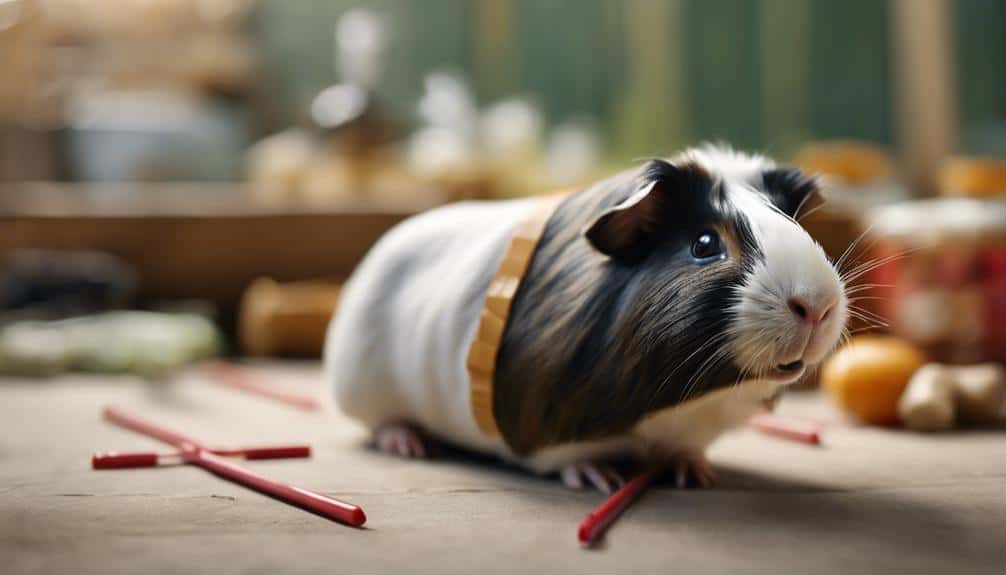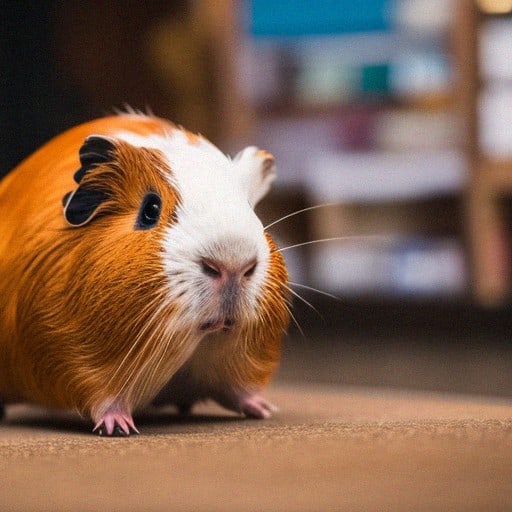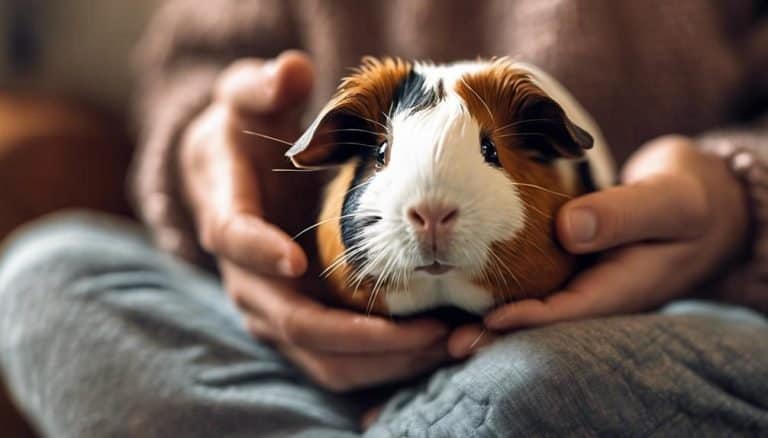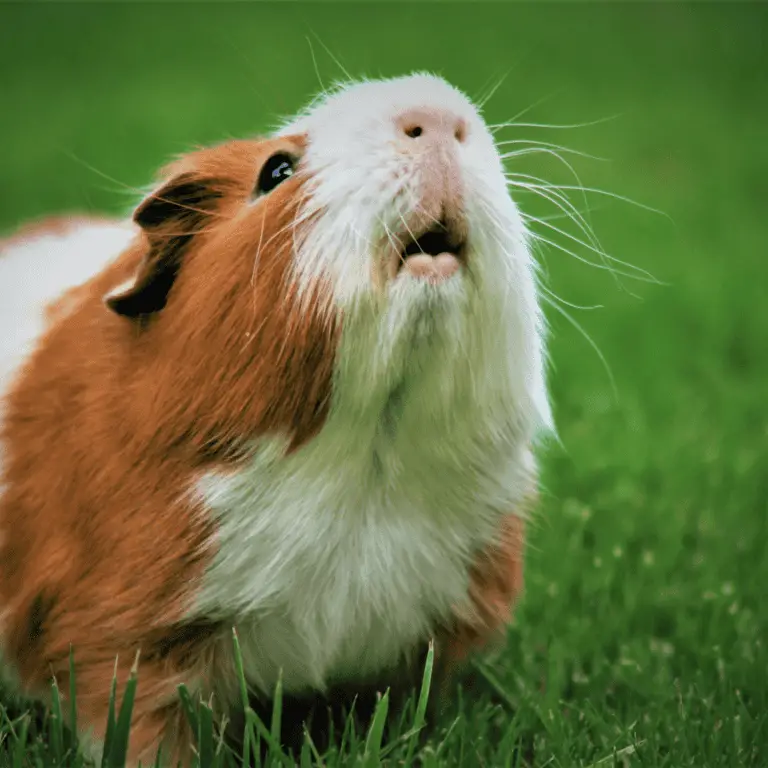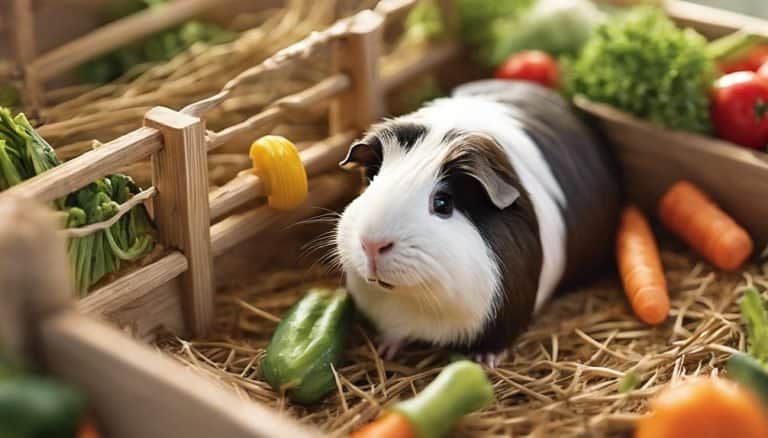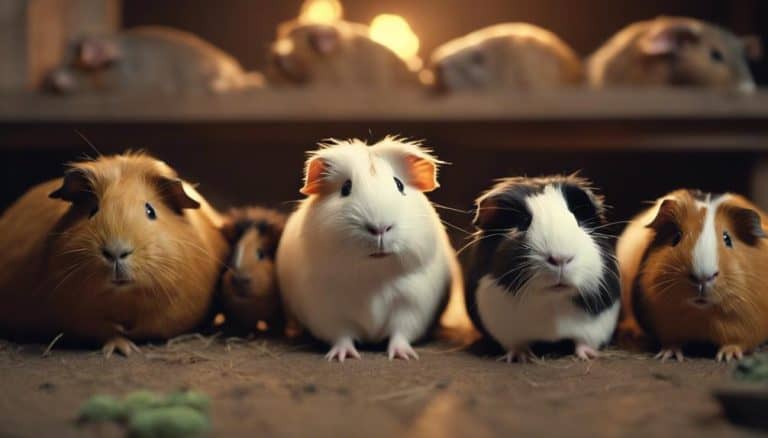How Do Guinea Pigs Fart: A Complete Guide
In the world of guinea pigs, the secret of their flatulence is akin to discovering a hidden chamber in an ancient labyrinth – intriguing, unexpected, and yet to be fully explored.
While many may dismiss the topic as trivial, understanding how guinea pigs fart can shed light on their well-being and offer valuable insights into their digestive health.
So, are you ready to unveil the secrets behind these furry creatures’ toots and poots?
Guinea Pig Digestive System
Guinea pigs possess a specialized digestive system characterized by a prominent cecum essential for fermenting fibrous foods and facilitating nutrient absorption. This cecum is a key component of their hindgut fermentation process, where gases are produced as a byproduct. These gases, which include the infamous guinea pig farts, are a necessary result of their herbivorous diet. While excessive gas in guinea pigs can sometimes lead to flatulence, it’s a crucial process for maintaining a healthy digestive system.
The cecum in guinea pigs acts as a fermentation chamber, breaking down tough plant fibers that their stomach and small intestine can’t digest effectively. This process not only aids in extracting essential nutrients from their food but also produces gases that need to be expelled through farting. Despite the potential for odorless or mildly scented farts due to their diet, guinea pig flatulence remains an important part of their digestive health.
Common Causes of Guinea Pig Flatulence
Excessive flatulence in these small herbivores can stem from various dietary factors and digestive issues. When a guinea pig eats gas-causing vegetables like broccoli and cabbage, it can lead to increased flatulence. Additionally, sensitivity to fresh foods or eating too fast can trigger episodes of excessive farting in guinea pigs. Signs of bloating and discomfort in the belly may indicate underlying digestive problems that contribute to flatulence. To help you understand better, here is a table summarizing common causes of guinea pig flatulence:
| Dietary Factors | Digestive Issues | Other Causes |
|---|---|---|
| Gas-causing vegetables | Build-up of gas | Eating too fast |
| Fresh foods sensitivity | Digestive system problems | |
Understanding these factors can help you manage your guinea pig’s diet and overall health to reduce the occurrence of excessive flatulence.
Frequency and Loudness of Guinea Pig Farts
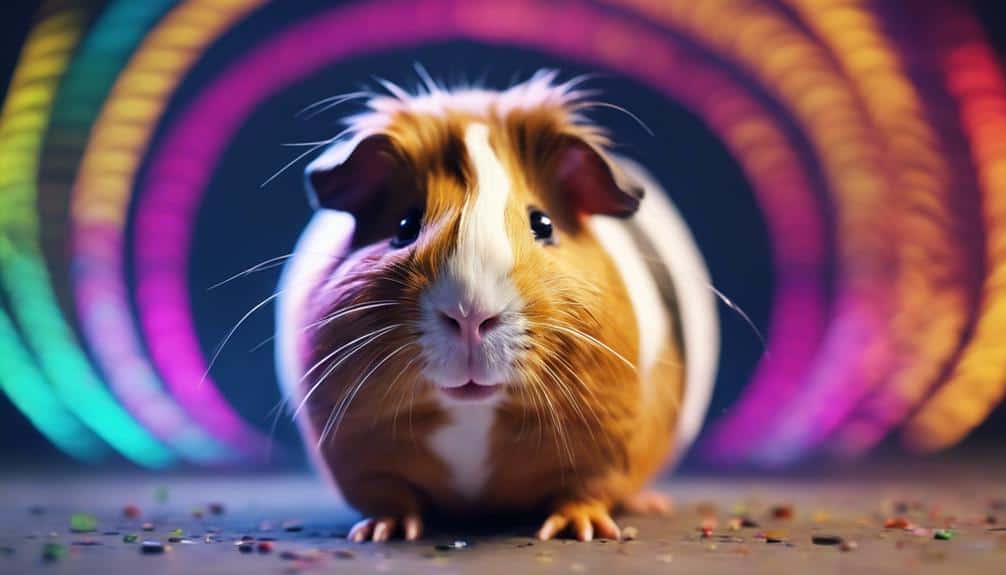
Exploring the frequency and loudness of flatulence in guinea pigs provides insight into their digestive processes and overall health. Guinea pigs typically pass gas 10-20 times a day, largely due to their high-fiber diet promoting gut motility. The volume and sound of guinea pig farts are influenced by various factors, such as the type of food they consume and their individual digestive systems.
Here are some key points to take into account regarding the frequency and loudness of guinea pig farts:
- Dietary Influence: The amount of gas buildup in a guinea pig’s digestive system can directly impact the frequency of farting. Diets high in fibrous vegetables may lead to more frequent flatulence episodes.
- Gas Buildup: Excessive gas accumulation in the gastrointestinal tract can result in more audible and frequent farts. Monitoring your guinea pig’s diet and ensuring it includes a balanced mix of nutrients can help prevent excessive gas buildup.
- Digestive Issues: Changes in the frequency or loudness of guinea pig letting may indicate underlying digestive issues. Consult a veterinarian if you notice sudden or persistent changes in your pet’s farting habits to rule out any potential health concerns.
Managing Farting Guinea Pigs
To effectively manage farting in guinea pigs, adjusting their diet to exclude gas-causing vegetables like broccoli and cabbage can be beneficial. Guinea pigs need a balanced diet to prevent the buildup of gas in the digestive system, which can lead to excessive farting. Providing smaller portions of fresh foods and ensuring proper chewing can aid in digestion and reduce gas production. Here is a table to illustrate the types of vegetables that can help manage farting in guinea pigs:
| Vegetables to Include | Vegetables to Avoid |
|---|---|
| Bell Peppers | Broccoli |
| Carrots | Cabbage |
| Cilantro | Cauliflower |
Consulting a vet for specialized care and treatment, such as trying simethicone, can also help alleviate farting issues in guinea pigs. Avoiding sudden diet changes and gradually introducing new foods is essential to prevent excessive gas buildup and farting. Monitoring their behavior for signs of bloating and seeking veterinary advice for persistent farting problems is vital for their well-being.
Odor and Health Concerns
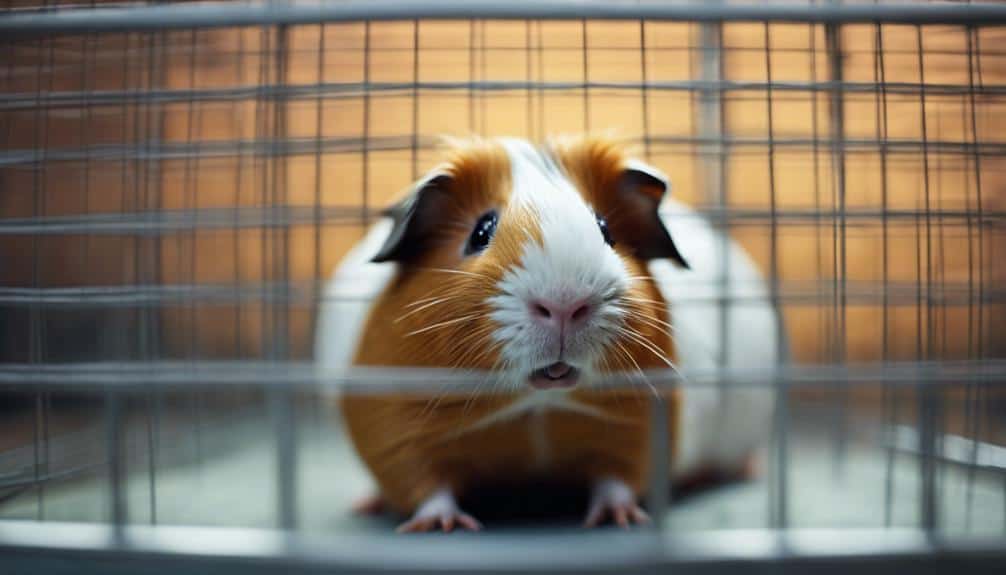
When contemplating the odor and health implications of guinea pig farts, it’s essential to understand the correlation between their diet and digestive well-being. Guinea pig farts are generally odorless or mildly scented due to their herbivorous diet, indicating a healthy gut. However, persistent foul odors in guinea pig farts might suggest an underlying health issue that requires attention.
To guarantee the well-being of our furry friends, it’s critical to monitor their farting patterns regularly to detect potential digestive problems early. If there are concerns about the smell or frequency of guinea pig farts, seeking veterinary advice is paramount in addressing any underlying health concerns.
Here are three key points to contemplate regarding the odor and health concerns related to guinea pig farts:
- Diet Impact: The herbivorous diet of guinea pigs plays a significant role in the odor of their farts and overall digestive health.
- Foul Odors Warning: Persistent foul odors in guinea pig farts can be an indicator of an underlying health issue that needs prompt attention.
- Veterinary Consultation: If there are concerns about the smell or frequency of guinea pig farts, seeking veterinary advice is critical for proper diagnosis and treatment.
Conclusion
Thus, we’ve unraveled the mysteries of guinea pig flatulence with scientific precision. Armed with knowledge of their digestive system and common causes of gas, you can now navigate the world of farting guinea pigs with confidence.
Remember, a well-balanced diet and attentive care are key to managing their toots effectively. So, embrace the symphony of squeaks and puffs from your furry friends, knowing that you’re an informed and responsible pet owner.
Happy farting, guinea pig enthusiasts!

